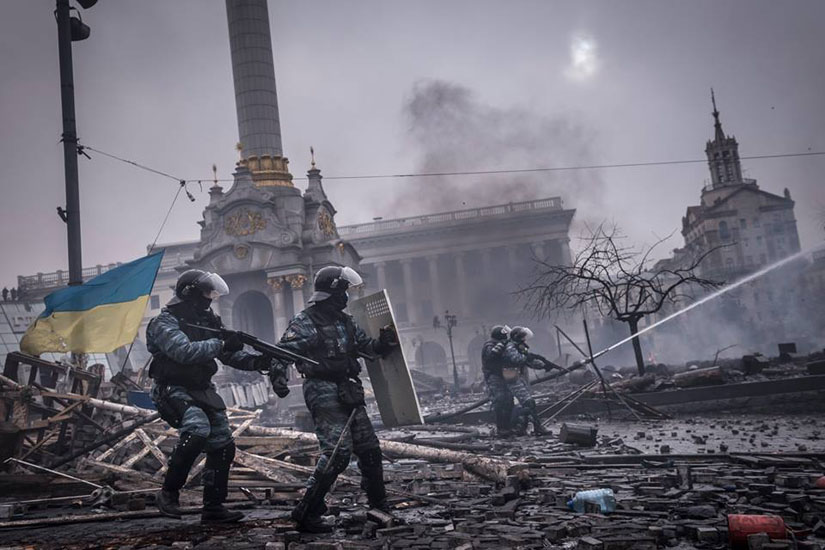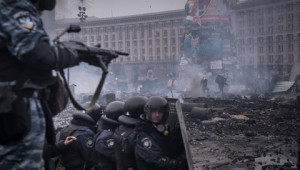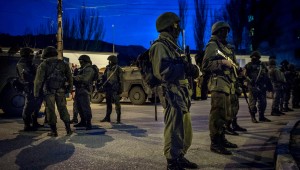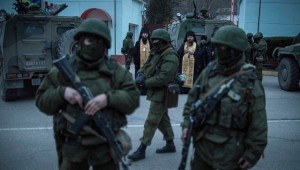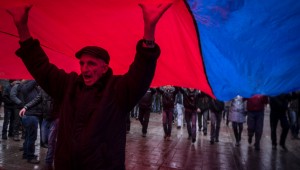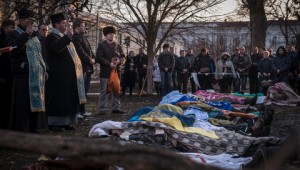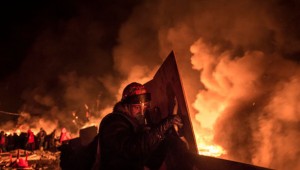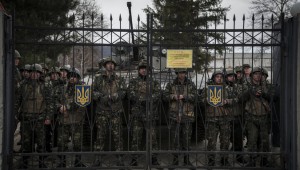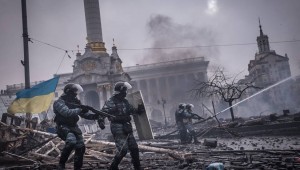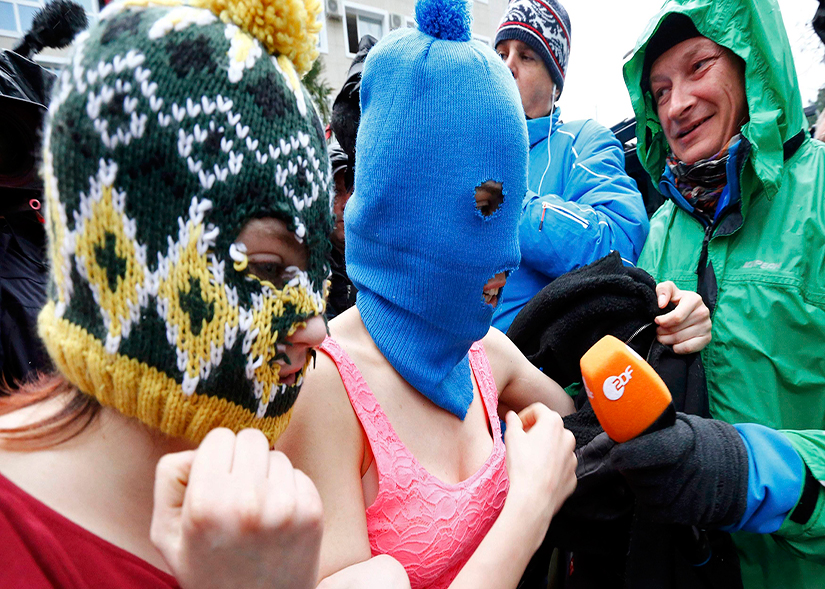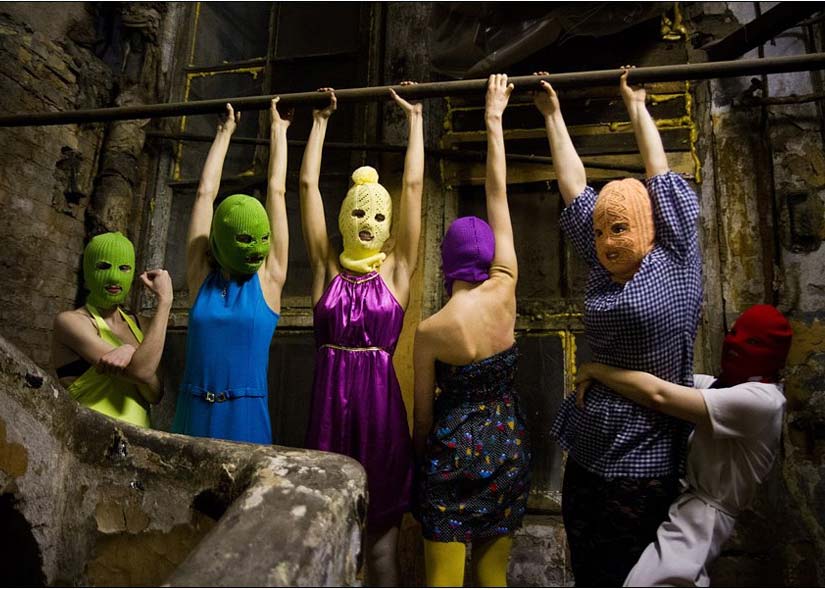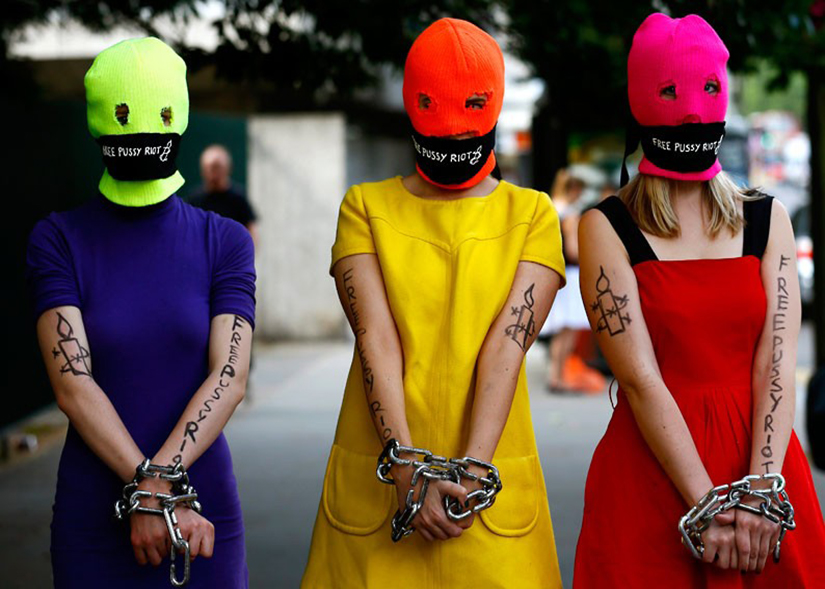Photographer Covers the Russian Army in Crimea
Photos by Sergey Ponomarev
On an assignment by The New York Times to cover the unrest in Ukraine, Moscow based photographer Sergey Ponomarev, found himself covering more than he expected. Within just a few days of arriving to Crimea, a very military based city, Ponomarev has been witnessing a rising number of Russian troops surrounding the area. In an exclusive interview with New York Times writer James Estrin, the photographer elaborates on the current unpredictable state of the situation, as tensions continue to grow.
However, in recent reports, 16,000 Russian troops have been deployed in the Crimea region from the neighboring territory of the Russian Federation. While provoking war and threatening to take control of the entire Ukrainian border, troops have already seized a major checkpoint. As new developments continue to update by the hour, the United Nations held an emergency meeting to find justification for Russia’s military intervention in Ukraine. In this meeting the Russian ambassador reported that the ousted Ukrainian president had asked Russia to use troops in aid of supposed open acts of terrorism that are occurring in the southeast part in Crimea, due to pro-westernized ties. Following the meeting, and just a day after calling off trade talks, the Obama administration suspended military ties to Russia, including exercises, port visits and planning meetings. Other country officials are said to follow.
While reports continue to pour in, photographer Sergey Ponomarev continues to cover all that unfolds. If this article can't explain the severity of the situation, his photographs sure will. Check out the following photos and be sure to follow his Instagram, where he shares daily photos.
[Via The New York Times]
Pussy Riot Members Attacked in Sochi
The backdrop to the entire 2014 Winter Olympics has been shrouded in controversy since the location of the games was announced the better side of a decade ago, making the most recent news to come out of Putin's games even less surprising: members of the punk girl revolutionary group, Pussy Riot, were attacked by roving government Cossacks yesterday as they left a restaurant in the town donning their trademark neon baclavas and clothing. Before the demonstration could begin, the members were accosted by the men, a guitar was smashed, but no arrests were made. A very certain check step in the showdown between Putin and his leftist, civil rights-fighting female demonstrators. It is also being reported that Nadya Tolokonnikova and Masha Alyokhina, recently released from prison and fresh on Russian soil after a turn through American late night television lately, were among the protestors put down by the resurgent Cossacks who have been tapped to help bring order and reinforce and agenda. According to a recent New York Times story by Ellen Barry, ""Cossacks have emerged as a kind of mascot [for Putin's ideology]... These days men in Cossack uniforms are making appearances all over Russia, carrying out blustery raids of art exhibits, museums, and theaters as standard-bearers for a resurgent church." They are also compared to cowboys, or Chinese samurai and have become a pawn in Putin's push to continue pushing Russia back to the Soviet days. It is interesting that Tolokonnikova and Alyokhina were present at the protest, as they were hesitant to say they were still a part of Pussy Riot after their release in December.
[Video] Pussy Riot Visits The Colbert Report
One of the biggest stories to hit the international registry over the past few years was the jailing of the all-woman punk rock band Pussy Riot by the Russian government in early March following a wild punk-inspired protest at the Cathedral of Christ the Savior of the Russian Orthodox Church in Moscow. The court case garnered international attention as the world's focus narrowed on human rights abuses by the Kremlin, making the three imprisoned Pussy Riot members international celebrities in the process.
Russia is again in the spotlight as of late, the twenty-second running of the Winter Olympic games begins in Sochi, Russia in just two days. On December 23, 2013, the last two members of Pussy Riot, Nadezhda Tolokonnikova and Maria Alyokhina, were released from prison. The release was viewed by many as a public relations move for the regime, plagued by allegations of human rights abuses towards women and homosexuals, as well as several explosions that rocked train stations near the site of the games last month. Upon her release, Alyokhina said to the New York Times, "I think this is an attempt to improve the image of the current government, a little, before the Sochi Olympics — particularly for the Western Europeans. But I don't consider this humane or merciful. This is a lie." Tolokonnikova added, "Whether one likes it or not, going to the Olympics in Russia is an acceptance of the internal political situation in Russia, an acceptance of the course taken by a person who is interested in the Olympics above all else — Vladimir Putin." The trio, who have vowed to not perform musically anymore, appeared last night on The Colbert Report to discuss their experiences and what's next for them and Russia proper. Watch the video below.
[iframe id="http://media.mtvnservices.com/embed/mgid:cms:video:colbertnation.com:432806" height="400" width="100%" frameborder="0"]
Pussy Riot Released From Prison
Two members of Russian all-women punk band Pussy Riot were released from prison two months early, after having spent nearly two years behind bars for performing a punk-infused protest in Christ the Saviour Cathedral in Moscow. The act brought hooliganism charges against three of the band's members, Nadezhda Tolokonnikova, Maria Alekhina and Yekaterina Samutsevich. Shortly after their sentencing Samutsevich was freed. Both Tolokonnikova and Alekhina, released just before Christmas day, issued a statement claiming their release to be a publicity stunt by the Kremlin, prompted by the impending Olympics in Sochi that have drawn stark criticism from world human rights leaders for the imprisonment of the band members, as well as noted repression of gay rights. For now, the pair have pledged to help inmates and continue working toward their progressive movement. Watch more on the story below.
[Via The Guardian]
[youtube id="ApS1Ip1ebZE" mode="normal" align="center"]

